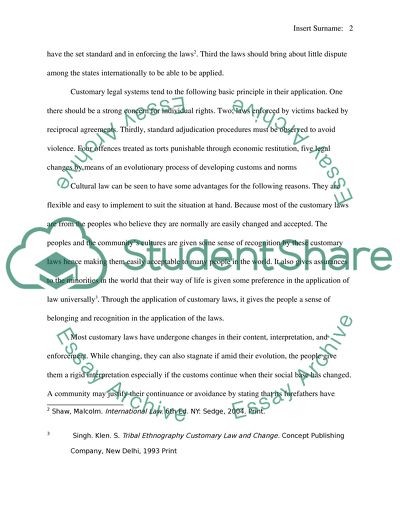Cite this document
(“Customary law Essay Example | Topics and Well Written Essays - 2500 words”, n.d.)
Retrieved from https://studentshare.org/law/1394524-customary-law
Retrieved from https://studentshare.org/law/1394524-customary-law
(Customary Law Essay Example | Topics and Well Written Essays - 2500 Words)
https://studentshare.org/law/1394524-customary-law.
https://studentshare.org/law/1394524-customary-law.
“Customary Law Essay Example | Topics and Well Written Essays - 2500 Words”, n.d. https://studentshare.org/law/1394524-customary-law.


